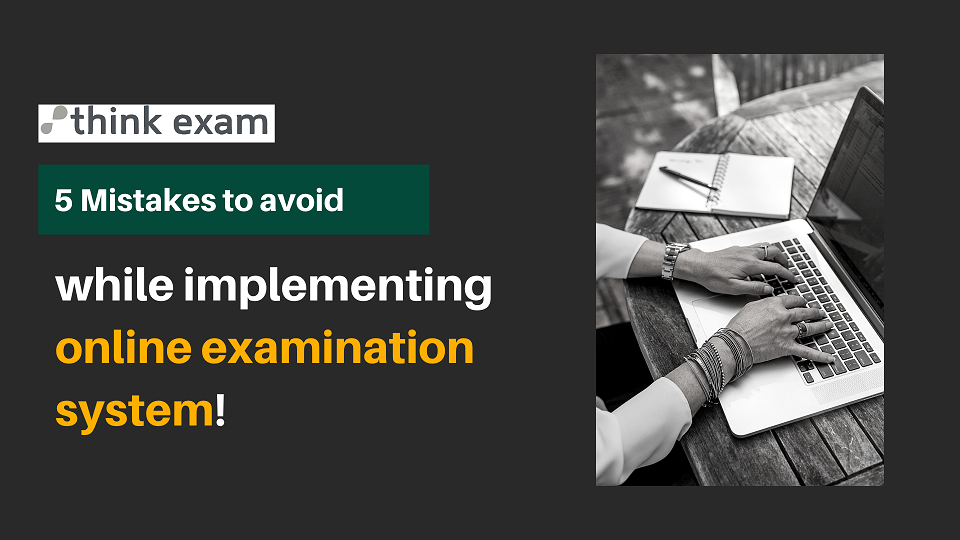[responsivevoice_button buttontext=”Listen to the Audio Version”]
Since long we have been focused on the conventional assessment system and this makes us a little rusty on adopting the concept of online assessments. Yet, online examination system has become a much sought after choice for many educators out there who are maintaining the continuity of academics even during the lockdown.
Its credibility has remarkably come forth at times of the COVID-19 crisis where the only option to conduct tests is through an online platform.
With the hopes of implementing new technology comes an added challenge of using it effectively. The same goes for online exam software too! Till now most of us are aware of the benefits of an online assessment platform, but how to use it effectively without cramping its worth is a challenge and you must achieve it by avoiding these top 5 mistakes-
Top 5 mistakes to avoid while implementing online examination system-
1. Not focusing on the security part of online exam
“60% of clients report having benefited from proctoring service which is used for monitoring online exams”
Technology is quite helpful in simplifying the examination process but ensuring the standards of security is also important when you want to receive the best outcome from technology.
The remote proctoring software is a useful tool to eliminate any sort of malpractice when conducting an online exam. It creates a safe environment for proper authorization and authentication of the entire online assessment process.
Universities who have simply implemented online assessment tools without considering the security part usually get prone to malpractices such as cheating or unauthorized student login.
Misconduct such as students using the internet for answers during online exams or copying answers from some saved tab can overall harm the reputation of the exam conducting body.
To maintain the highest level of security it is important to use a remote proctoring system and also, the credentials, exam pattern and question bank should be stored in an encrypted format.
2. Not giving sufficient time to training
We all have been trained for paper-based tests and online assessment is altogether a new concept to us. Hence, it is important to ensure that students have good knowledge of using this platform. Training them through hands-on experience with mock tests and multiple training sessions is integral to its application.
Educational institutions that implement online exam in a hurry tend to decrease the credibility of this process by ignoring the training part.
3. Increasing the complexities of online exam
Try to integrate online exam software that is user-friendly and has got an intuitive interface. Before introducing it to your students go through all of its features first and experiment with its functionalities at your end.
There have been many instances where the online exam conducting software was integrated but because of its complex features, many students who are not that comfortable with technology couldn’t perform well through it.
4. Ignoring the importance of mock tests before exams
Mock tests hold an eminent place in training students for both the usage of the software as well as for the exam syllabus. Mock tests are created as a replica of the exact exam pattern and the time limit, as well as the test scenario, is similar to the main exam.
This run-through of the system workflow is not just beneficial for the students but also for the teachers who are equally nervous about the entire flow of the process.
Mock exams also help in increasing the confidence of the students to seamlessly use the online exam platform. They get many chances to experiment with the features and learn from their mistake which brings an overall positive outcome on the final exam day.
5. Not giving importance to the audit process
The audit process is an aftermath of an online test in a way that it serves as a verification and trail mechanism. If the exam conducting body feels that something is wrong during the exam and wants to verify it afterward then this is where the audit process helps.
The online examination system that you will be implementing should have the entire online examination process recorded right from login to the logout and of course everything that comes in between.








